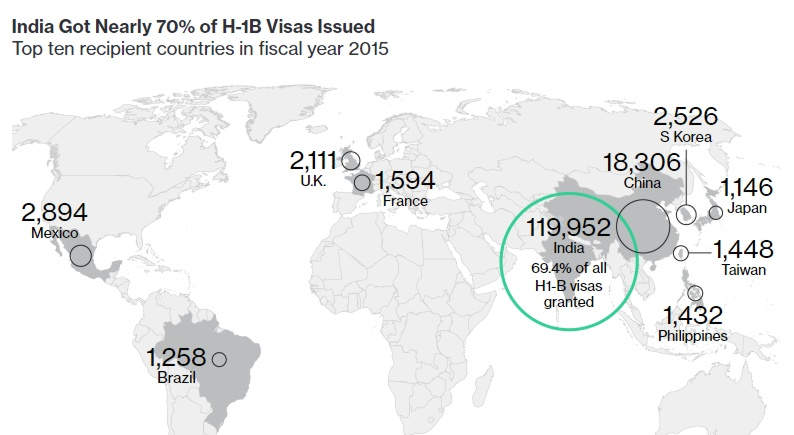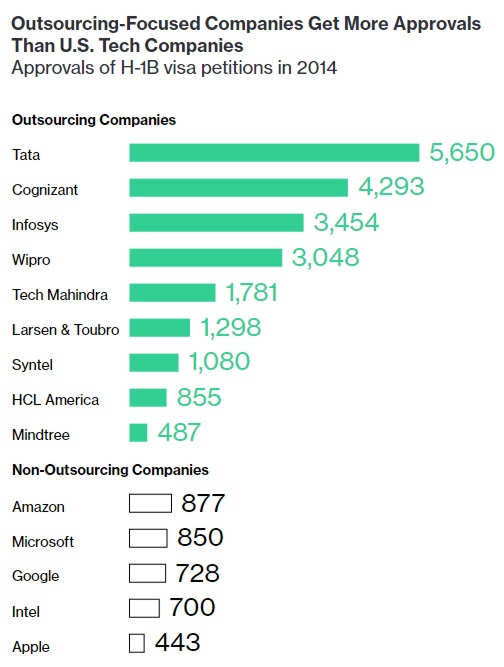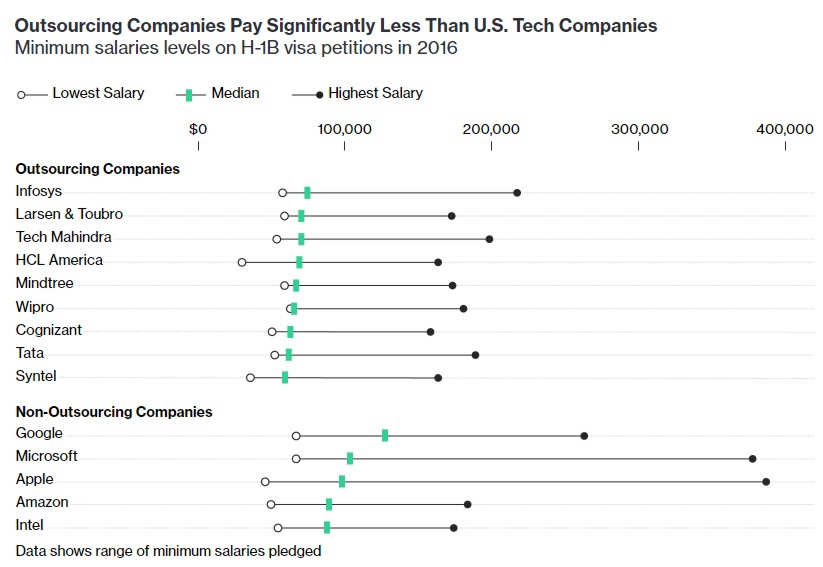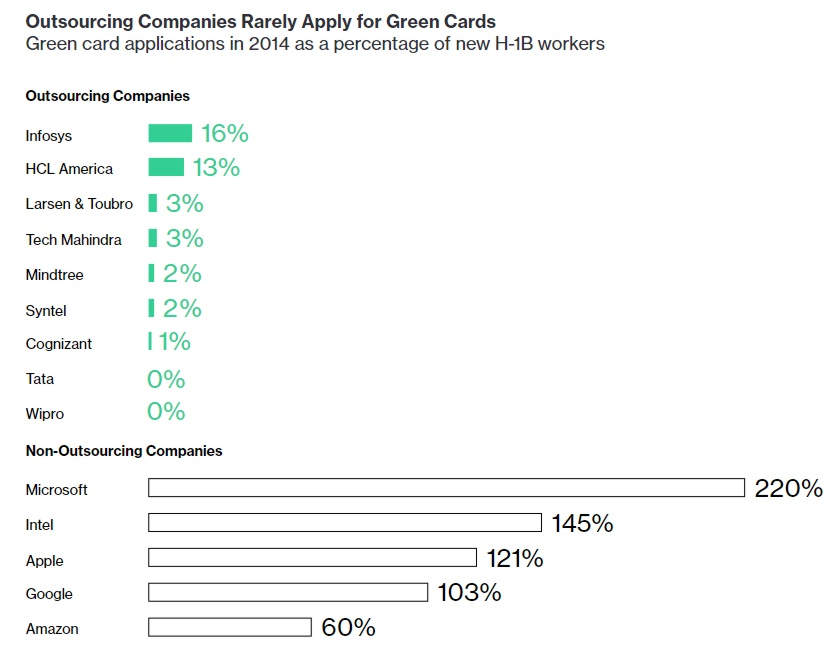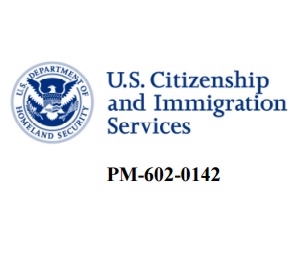| US Curtailing H-1B Visas For Computer Programmers |
| Written by Sue Gee | |||
| Friday, 07 April 2017 | |||
|
As the annual lottery for H-1B visas that enable US companies to recruit highly educated foreign workers to work in "speciality occupations" gets underway, a memo relating to computer programmer jobs will impact the outsourcing companies that grown up to fill vacancies that might not really need specific expertise. H-1B visas were introduced in 1990 (although similar visas for guest workers predate them) to address the shortage of US workers with specific skills. The H-1B is a "non-immigrant visa" program and visas are issued for 3 years, with a maximum duration of 6 years, although many of the workers who arrive in the US on H-1B visas later obtain citizenship. There is a cap of 65,000 for the "general" H-1B visa category for foreign workers with at least a bachelors degree, however a further 20,000 places are available for foreign nationals awarded a masters of PhD from a US institutions. So many applications from employers have been received in recent years that a lottery process is used to fill empoyers' requests for visas. Having made reform of immigration policy one of the US presidential campaign pledges, the Trump administration has announced various measures intended to reduce abuse of the H-1B Visa system and to deter employers from discriminating against US workers. One of the ways in which the system is being perverted from the original purpose of filling a skills gap is that overseas workers on visas are prepared to be paid substantially less than American workers. The system has also led to outsourcing companies, predominantly those based in India obtaining a disproportionate share of the H-1B visas. The map below is based on research by Ron Hira, an associate professor at Howard University, who has done extensive research on the H-1B program and collected data through Freedom of Information Act requests. Source: Bloomberg
The policy memo from the US Citizenship and Immigration Services that was issued on March 31st rescinds a guidance memo dating back to December 2000 and issued by Terry Way, former direction of the Nebraska Service Center that effectively lowered the bar for some computer programming jobs from having a bachelor's degree to just a 2-year associate degree. The Terry Way memo is now considered obsolete as it relied on the 1998-99 and 2000-01 editions when some computer related occupations were in a period of "transition". Its main flaw is that: statements in the memorandum do not fully or properly articulate the criteria that apply to H-1B specialty occupation adjudications. While the memorandum stated that most programmers had a bachelor’s degree or higher based on information provided by the Handbook, that information is not particularly relevant to a specialty occupation adjudication if it does not also provide the specific specialties the degrees were in and/or what, if any, relevance those degrees had to the computer programmer occupation. Further, the memorandum failed to mention that only “some” of those that had a bachelor’s or higher degree at that time held a degree in “computer science . . . or information systems.” The effect of the new memo is intended to ensure that speciality jobs are restricted to those that require a full bachelors degree or higher in a specific discipline, which would be considered over qualification for many jobs at computer programmer level. This is expected to have most impact on those outsourcing companies that bring junior level staff from India into the US in order to train them within US corporations before returning to India. However, as Hira's figures show outsourcing-focused companies get the vast majority of approvals of H-!B visa petitions. Source: Bloomberg Outsourcing companies pay significantly less than non-outsourcing companies which is why they tend to take jobs away from American workers as revealed by this salary data: Source: Bloomberg Whereas Google and Microsoft pay HB-1 workers $100K or more, the norm for outsourcing companies is $65K - $75K. One of the aims of the capping the number of temporary H-1B visas was to encourage employers to hire permanent employees on "green cards which enable them to become US citizens. Hira's data shows that most of the outsourcing companies rarely make green card applications, whereas it is a very common practice for Microsoft, Intel, Apple and Google.
The effect of the ensuring that the jobs filled by those in the H-1B program really do require the skills conferred by a Bachelor's degree or post graduate study should make it easier for US companies to attract well qualified overseas workers who want to make a career in the USA. The memo should therefore redress a shortcoming in the way the system has operated for many years. More InformationU.S Citizenship and Immigration Services Molicy Memo 602-0142 Trump’s Administration Just Made It Harder to Get Work Visas Related ArticlesRandom Means Random - The Green Card Fiasco Udacity Blitz From a Different Perspective E-Commerce Giant Hires Udacity Graduates Based On Nanodegree Portfolio Start Your Career With Udacity Nanodegree Nanodegree Plus Offers Guaranteed Jobs The Tech Interview Process Lengthens
To be informed about new articles on I Programmer, sign up for our weekly newsletter, subscribe to the RSS feed and follow us on Twitter, Facebook or Linkedin.
Comments
or email your comment to: comments@i-programmer.info
|
|||
| Last Updated ( Friday, 07 April 2017 ) |
